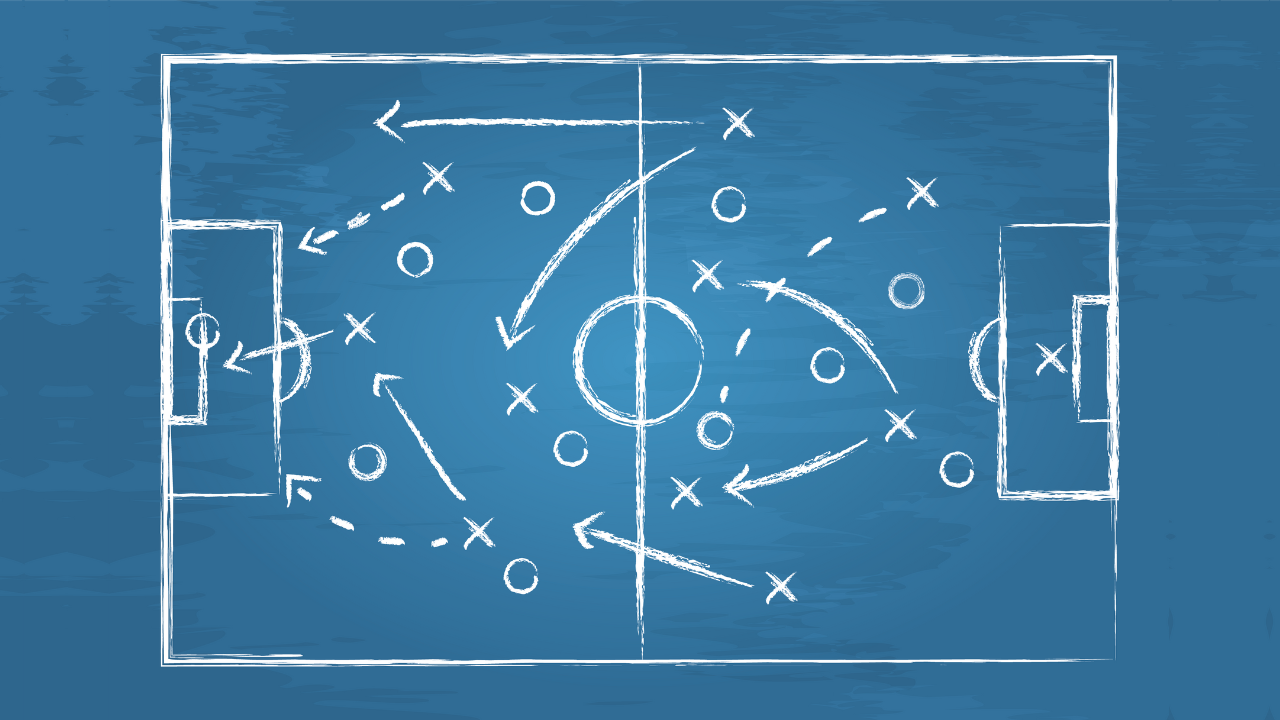Denison Algebra and the ACT/SAT
Do Denison Algebra courses cover the math needed for the ACT/SAT?
The short answer is YES, absolutely!
When I wrote my courses, I knew just from experience that they covered the needed algebra and geometry for the ACT/SAT (I’ve been in math education for 25 years). However, I recently decided to dig into the world of the ACT/SAT just to make sure that what I taught in my courses truly lined up with what math skills are being tested on those exams (since the tests undergo changes over time). I read several prep books (from top publishers), and took many practice ACT and SAT exams, charting and categorizing each question. I found that most math questions (85-95%) on the tests required skills directly taught in Denison Algebra courses. The remaining questions required skills learned before pre-algebra (basic arithmetic questions, simple pattern recognition, basic word problems that do not require algebra, etc.). And then, to cap it all off, I personally took the ACT when my daughter sig...
It’s Okay to Not Understand Algebra

Many students don’t understand algebra concepts the first time they see them, and that is completely okay, even to be expected. It’s okay to start off just memorizing the steps for working problems in algebra, even if students don’t know what they are doing and don’t grasp the bigger picture. The reason it’s okay is because oftentimes something learned in a math class doesn’t become relevant until we see it in context in the following math class. A student can really get bogged down trying to understand (or being forced to try to understand) a concept that might just be a bit out of reach at that point in the student’s math development.
That’s why it’s okay to just say “for now, memorize the steps and just learn to work the problem.” Many times, students will have “ah-ha” moments in algebra 2 about concepts they learned in algebra 1. They didn’t understand the concept in algebra 1, but then seeing it in a greater context in algebra 2 causes them to say “ohhhh, I get why we did it that...
Need Some Strategies for Math That's Falling Apart?

Is math going terribly at home, but you have no idea how to fix it?
This can happen for a variety of reasons (poor curriculum, poor teaching, craziness of life preventing consistent daily math lessons, gaps in math education, lack of effort by student, poor learning techniques, etc.). While I can’t address each specific situation, here are several things that can help with any math situation that is going down in flames.
Before I begin however, I need you to keep one thing in mind: At this point, you are stuck, and need to get unstuck and just make some sort of forward progress. Don’t worry right now about “how are we going to finish the curriculum this year, etc.” First, just try getting unstuck and then worry about other things after you are making some forward progress.
Ok, now for putting out the flames…
- Modify. Unless you are using another teacher in a co-op setting, you can modify the lessons. This is homeschool after all! You can even heavily modify if needed. One suggesti ...
How Much Help Is Too Much for My Struggling Student?

We all want our kids to become independent learners, right? So, is it okay for a parent to sit with a struggling older child (maybe even a high school student) through every single math lesson to help them through it?
The answer to that question is YES.
Won’t that hinder their ability to learn on their own? NO.
If you have a student who struggles with math, two things are very important (besides just learning the content). 1) That student needs to have his or her confidence built up and 2) they need to acquire effective learning strategies. These are the things that will dictate whether they are successful in math going forward.
You, as a parent walking alongside your student through the course will only enhance and help in those areas, especially if you are using a curriculum that is clearly taught and well-paced for the struggling student. When this is the case, you are free to be a cheerleader, an encourager, and a guide, which only strengthens your student and helps him or her ...
Math + Daily = Retention

Doing math daily is essential for learning high school math. Why? Because many of the topics learned in high school math (algebra 1 and beyond) are abstract: they exist in thought, but are difficult to show in a physical, concrete, or hands-on way (concepts such as negative numbers, square roots, and imaginary numbers). Plus, a lot of these abstract ideas are brand new to students, so they don’t have a “hook” to attach them to in the brain. Then, on top of all of that is the fact that most students don’t really want to be learning algebra to begin with. Put all of this together and you have a perfect recipe for high levels of forgetfulness. How do you combat this? By doing math daily. This makes learning and remembering math so much easier.
Typically, I hear of two main arguments against doing math daily. The first is that schedules can be crazy for high schoolers, making it difficult or seemingly impossible to do math every day. My answer to this is that when I say “daily,” I don’t m...
The Power of a Physical Book

When it comes to learning math, one size does not fit all. There is no magic curriculum that works for every type of student and every type of learner. However, in 20+ years of teaching high school math, I have found that all students benefit from one thing: having a physical math notebook (or textbook) that contains easy-to-read explanations and class notes, as well as previous assignments so students can easily flip back and look at them as a reminder. Students absolutely WILL forget math concepts, especially algebra concepts. Because of this, they need a quick and easy way to remind themselves of previously learned concepts.
This contrasts with curricula that are completely online. While completely online curricula have advantages (access from any device, automatically graded homework, students not having to keep up with anything, etc.), I frequently find that students who use a completely online curriculum don’t have any physical notes or physical homework assignments to refer bac...
Success Is In The Habits

Budgeting. Flossing. Exercising. Studying. Healthy sleep hygiene. In so many aspects of life, whether we experience success or not depends on our habits.
Math is absolutely on the list because here too, success lies in the HABITS. Students do need a good curriculum that is sensible and sets them up for success (small bite-sized lessons, video teaching, physical notes and assignments, robust solutions manual). But that alone won’t be good enough unless it is paired with good learning HABITS. And that is the hardest part to change when it comes to learning math.
You might hate math. Your student might hate math. There might be fights, tears, anger, and anxiety built around math. Math might make your student feel dumb, and who wants to do something that makes them feel dumb? So bad habits like avoiding math lessons, skipping days, rushing through lessons, etc., start to develop. But if you can change these habits (slowly), combined with a sensible curriculum, then you will see a huge im...
Algebra: Treat It Like A Sport Or An Instrument

There are two things that tend to be common in the homeschool math world (and I’ve been guilty of them myself) that if students change, can make learning high school math so much easier. Keep in mind that learning algebra is a skills-based subject, similar to learning to play a sport or an instrument. With that in mind, here are two simple suggestions to help students notably improve their algebra learning.
#1: Don’t turn off a video lesson before it is finished because you think you understand the concept. Watch (and interact) with the entire lesson from start to finish. Imagine if you played on a sports team, and your coach was showing you how to run a play. After he showed you the play, would you say “Ok, I got it. I’m going to take off now.” No! You would then run that play over and over again, with variations, and listen to what the coach has to say about it. The same goes for algebra. As I’m teaching a video lesson, I am constantly giving suggestions, showing variations, and so ...
Finish Out The Year With a Light at The End of The Tunnel

It can be very difficult to stay motivated to finish the school year with math, especially if it has been a difficult math year. Below are three suggestions to help you finish the school year on a positive note regarding math.
- Set an end date, regardless of where you are in the course. That way it doesn’t feel like math is going to go on forever. Pick a date that works for your family. April 30th. May 15th. Whatever is reasonable. Then, you have a light at the end of the tunnel and can finish strong.
- Don’t worry about finishing the course. Don’t stress. Unless your child is just loving the course and determined to finish it, just get as far as you can and go on with life. If you are at least 2/3 of the way through the course, my general advice is to pick an end date, finish strong through that end date, and take a summer break. If it was a tough year and you are only half-way through the course (or less), then consider taking a summer break and just picking back up with it in the f ...
The Math Success Curve: Maturity and Familiarity

The other day I was helping one of my algebra 2 students work a challenging problem. I was using all sorts of algebra terminology (which she understood), and I was able to guide her easily through the problem. It suddenly dawned on me that this was a student that came to me two years before as an absolute math-hater. She had no self-confidence and thought she was dumb in math. Her mom was about to completely give up trying to get her through algebra 1. So, what transformed her from barely being able to do a single algebra problem (and hating it) to being a very competent algebra 2 student?
I can answer that in two words: Maturity and Familiarity.
By “maturity” I just mean growing a little older, which happens to every single student. It is amazing the difference between how a student thinks as a 9th grader and how they think as an 11th grader. They naturally grow in the ability to understand abstract topics.
By “familiarity” I mean that when the brain is familiar with something, it ...

